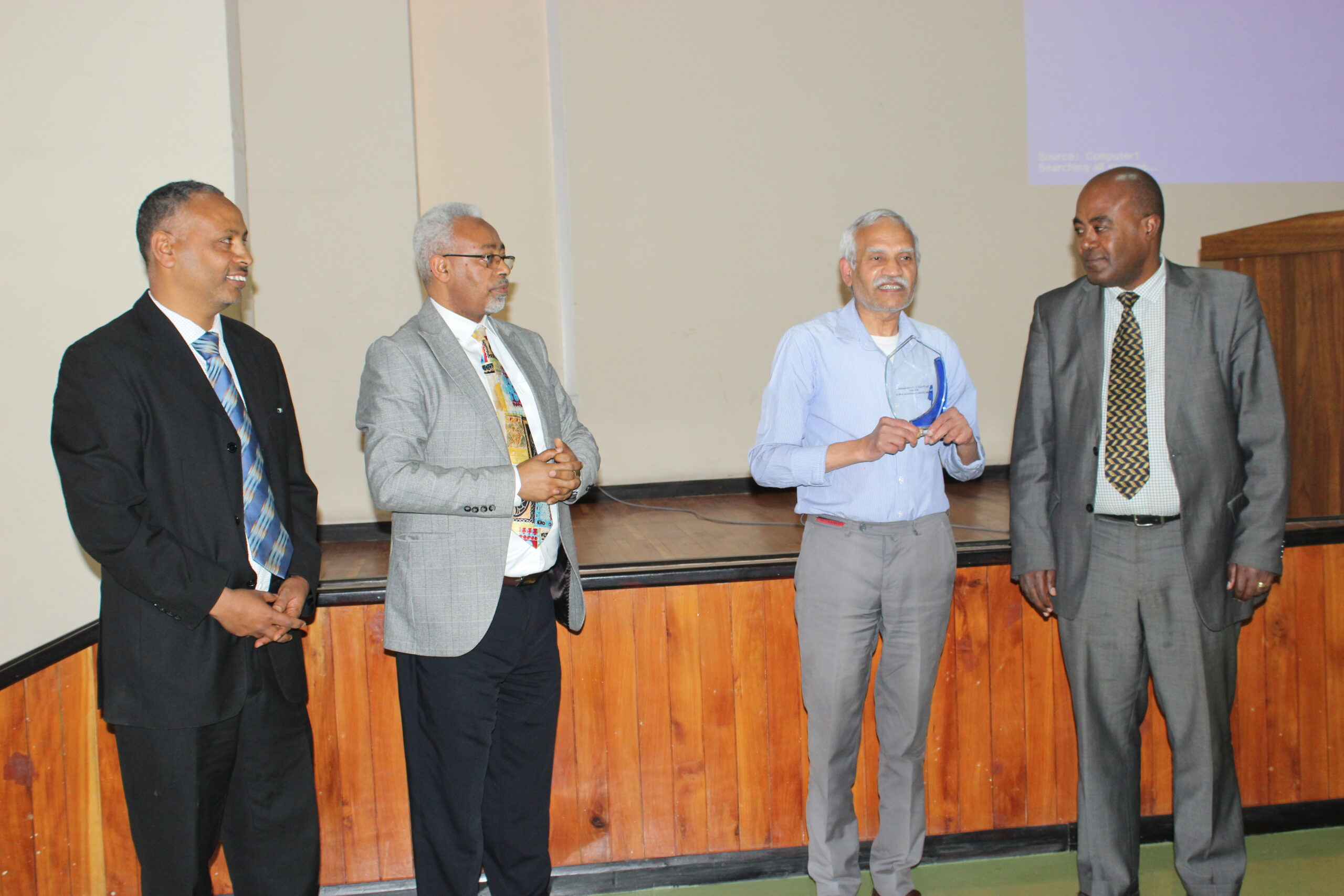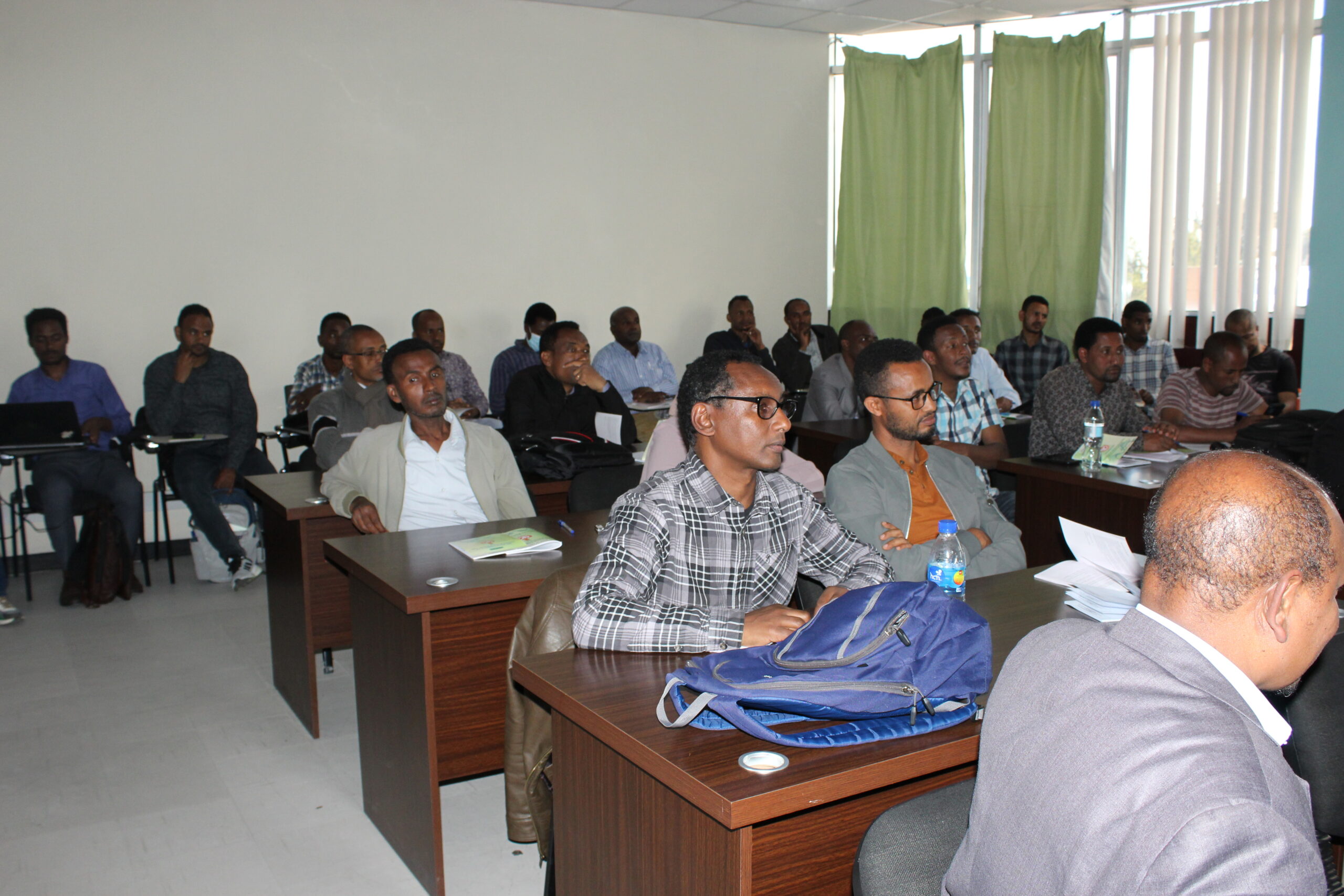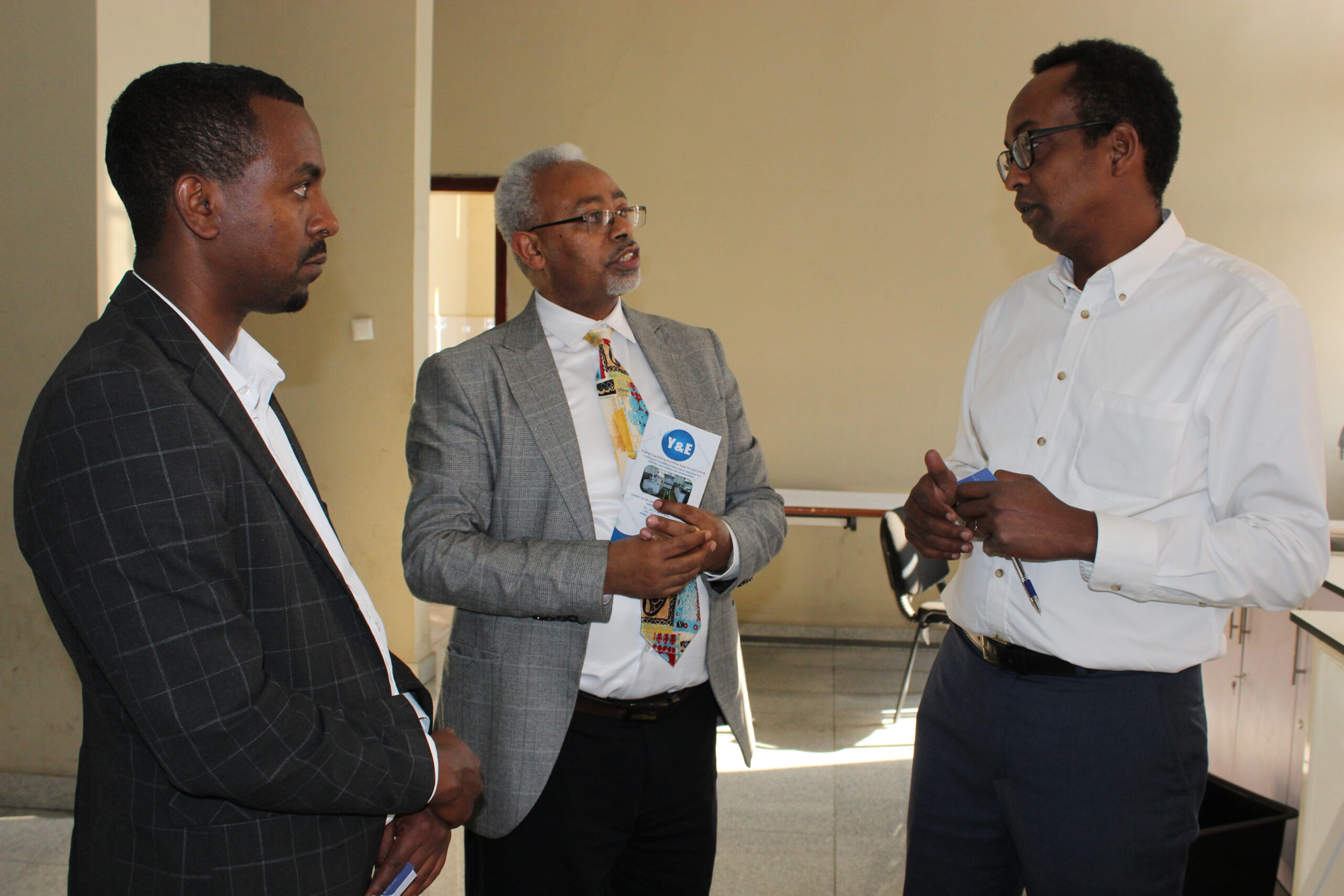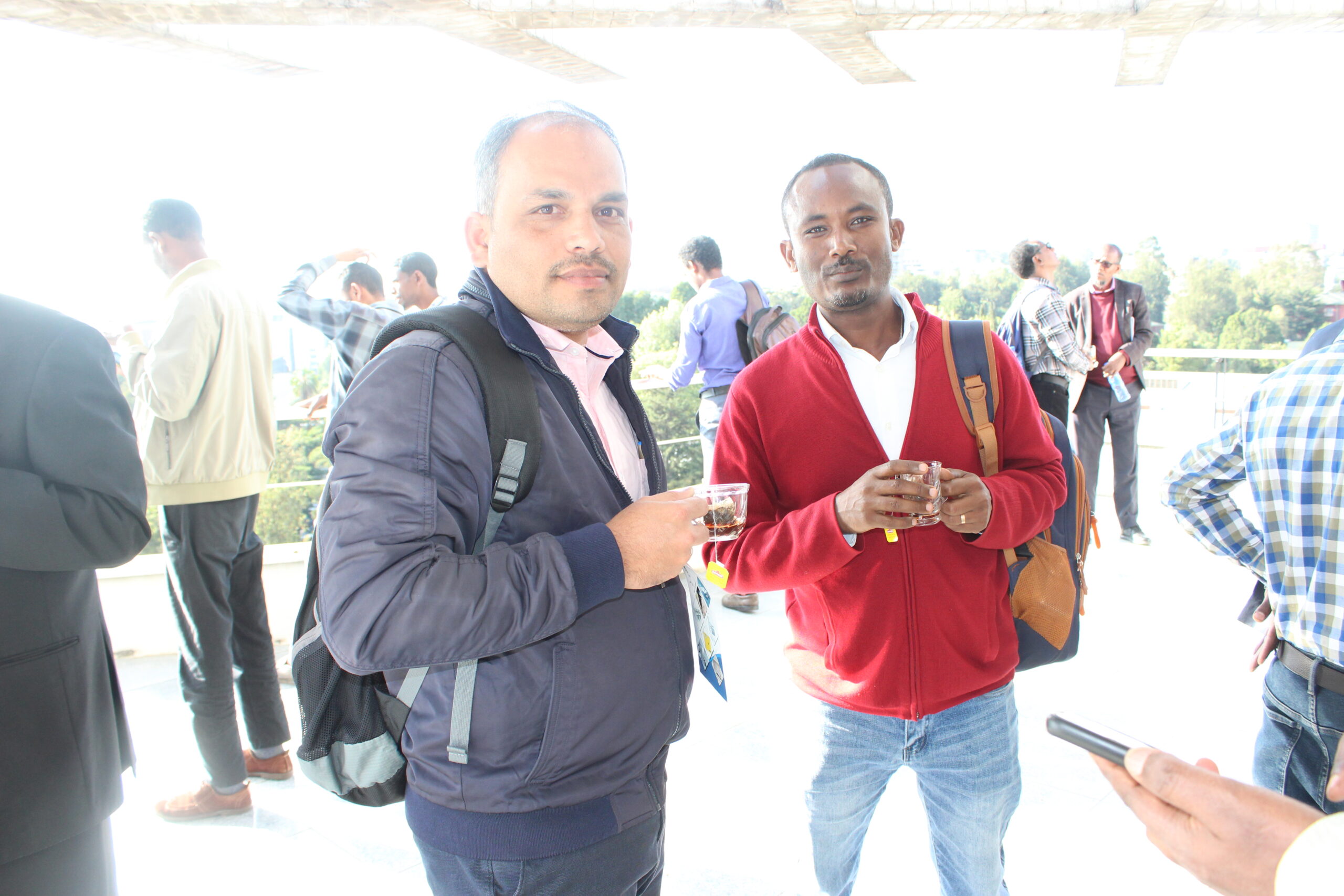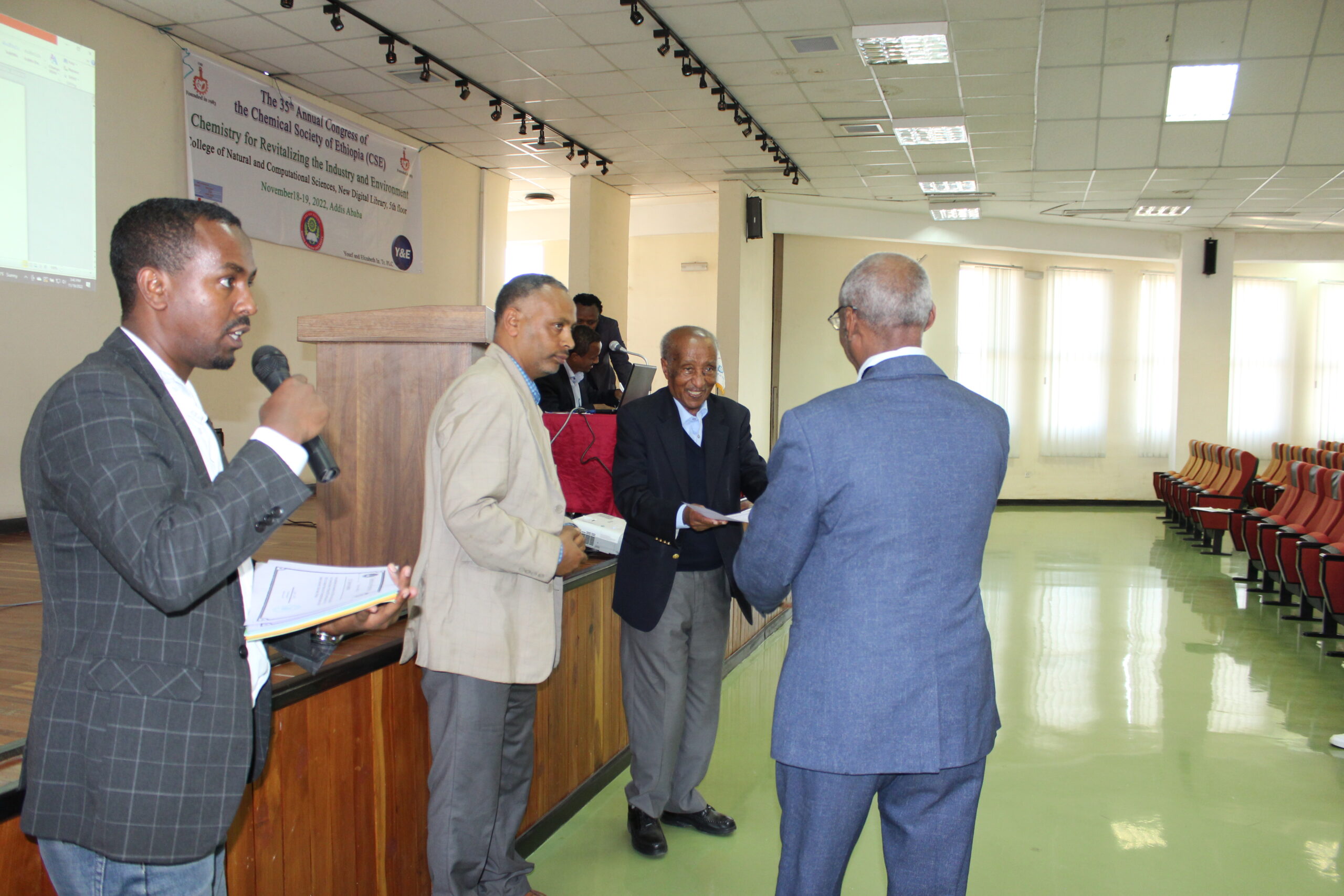Annual Congress of CSE
The 35th annual congress of the chemical society of Ethiopia will be held with a theme of "Chemistry for the Rehabilitation of Industry and Environment" from Nov. 18 - 19, 2022 at Addis Ababa University.
The sub-thematic
Abstract Submission Deadline:
SELECTED ABSTRACTS
Access to clean energy and safe drinking water are continuing to be the two most urgent challenges for developing countries striving to get out of poverty. Our research group is engaged to develop conducting polymers, cheap and scalable biopolymers for conversion of solar energy to electrical energy, storing the electrical energy, monitoring toxic substances and detoxification of wastewater. The present talk will discuss the knowledge and experience gained particularly in developing printed plastic electrodes to overcome these challenges.




